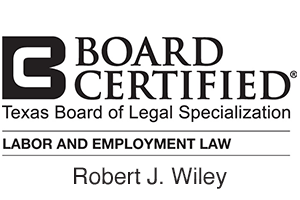in Austin, Texas
Unpaid Commissions
Your Employer Cannot Withhold Commissions from You
If you are paid based on the number of sales you make or the value of the transactions you execute for an employer, your pay is based on commissions. Contracts that involve commissions can be oral or written just like any other contract, but it is a good idea to have a written promise from your employer to pay you commissions. That writing should be as specific as possible, detailing when you earn commissions and whether you need to be employed through a specific date to receive them. If you write the document establishing the commission scheme, it is even more important for you to be specific, because courts will interpret any vague language in a contract to go against the side that drafted it.
When Can You Recover Commissions?
If your employer has denied you commissions that you believe you are entitled to, you may be able to file a lawsuit against them for breach of contract. In Texas, employers generally have discretion to implement the terms of a commission plan, and may be able to modify the terms of the plan as well. However, they have no authority to interfere with commissions you earned already. If your employer announces that they are changing the way commissions are paid, and you resign before receiving your final commission, they should not be able to pay you less than what you earned under the original agreement. However, there are several things you will need to prove before you recover damages. You will need to show that you would have earned a commission under the previous plan and that the employer has a practice of paying commissions to departed employees.
The commission plan should also be in writing. Beyond this, whether or not you can recover your commission may also depend on whether you voluntarily resigned or were discharged with good cause, and whether or not you had duties that you still needed to complete at the time you left that employer. This is because employees who leave their employer while there is still substantial work left on a customer’s account may not be able to recover commissions. If you are terminated involuntarily, you may be able to recover a pro rata share of the remaining commission, depending on what is agreed and what is in writing. If your employer drafted the commission plan, any ambiguity in its language will be construed against them.
What If There Is No Written Contract?
In some situations, you are still able to recover commission payments even if no writing exists. If your employer has a documented history of paying you a particular commission for a particular accomplishment, that could create an expectation that you will receive the same commission in the future. You would then be able to prove that there was an implied contract for the company to pay you that commission, and win compensation if they deny it to you. You may also be able to sue your employer for breach of contract under the theory of promissory estoppel. In contract law, promissory estoppel refers to the tradition of allowing clients to recover damages when they relied, to their detriment, on a promise made by another party. It applies even in cases when no written contract exists. To recover unpaid commissions under promissory estoppel, you will need to prove that your employer promised to pay you a commission, they knew that you would rely on their promise, and that your reliance caused you negative consequences because of their refusal to pay.
Where Can I Go for Help?
It can be difficult to recover unpaid commissions from a current or former employer. Retaining a qualified attorney can help with that process. If your employer is refusing to pay you commissions that you believe you are fairly owed, you should contact one of Austin Employment Lawyers, P.C.’s Austin employment lawyers. To get in touch with us, you can fill out our intake form or call our office at (512) 271-5527.







